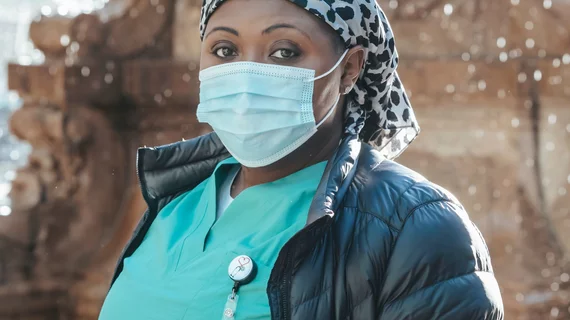Preparedness for pandemic response is only the third most pressing patient-safety concern in 2021, according to the ECRI Institute.
Topping the nonprofit watchdog’s top-10 list are racial and ethnic disparities at No. 1 and emergency preparedness in eldercare close behind.
ECRI released its annual list and related report this week, stating that it arrived at the 10 by analyzing more than 4 million patient safety events and asking its own experts for their observations.
Eight of the 10 relate to the COVID crisis, and the group offers recommendations on how best to deal with all 10.
Here’s the list of concerns, along with ECRI’s summary clarification of each.
1. Racial and ethnic disparities in healthcare. Differences may include frequency of screening for COVID-19 or other diagnoses, disease severity, complications and deaths.
2. Emergency preparedness and response in aging services. Over 570,626 confirmed cases and over 112,383 deaths occurred in nursing homes as of February 1, 2021.
3. Pandemic preparedness across the health system. Government investigations, congressional reports and pandemic preparedness reviews warned that America’s healthcare system was woefully unprepared for a fast-moving infectious disease outbreak.
4. Supply chain interruptions. Limits on exports, plus shutdowns in countries that manufacture and produce raw materials, resulted in delays for much-needed supplies.
5. Drug shortages. The COVID-19 pandemic led to shortages in almost every drug class used for mechanical ventilation.
6. Telehealth workflow challenges. Event reports cited poor wi-fi, inappropriate monitoring, inadequate language services and health privacy issues.
7. Improvised use of medical devices. Modified devices, workflow or systems may lead to serious safety and regulatory compliance issues.
8. Methotrexate therapy. The weekly administration of this cancer drug—also in use for autoimmune diseases—leads to dosing and dosing frequency errors.
9. Peripheral vascular harm. Severe cases of injury and infection can lead to extended lengths of stay and antibiotic treatments—even death.
10. Infection risk from aerosol-generating procedures. The exposure risk from performing aerosol-generating procedures on suspected COVID-19 patients is very high.
In press materials, Marcus Schabacker, MD, PhD, president and CEO of ECRI, comments on the patient-safety issue his organization has identified as the single most urgent.
“Clearly, racial disparities will not disappear overnight,” he says. “By profiling this issue, we are calling much-needed attention to this public health crisis.”
The report is available in exchange for contact info here.
Related Content on Health Disparities:
Racial, ethnic disparities ranked No. 1 patient-safety issue of the year
Initiative aims to leverage technology in mitigating healthcare disparities
Hospitals, nurses and docs urge Senate leaders to earmark funds for disparities in COVID care
Medicare improves racial healthcare inequities
HHS reports 40% decline in uninsured black Americans with the Affordable Care Act

